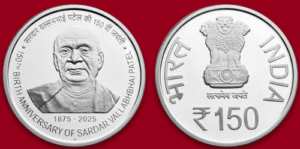In a major boost to India’s ambition for semiconductor self-reliance, the Indian Institute of Information Technology (IIIT) Bhagalpur has successfully designed a highly compact 32-bit semiconductor chip, achieving a significant milestone under the Government of India’s flagship Chips to Startup (C2S) Programme.
While details about the exact size are yet to be officially validated as the “world’s smallest,” the design’s advanced miniaturization marks a national triumph in indigenous chip development.
The project, which has been accelerated ahead of its original timeline, received critical financial backing with a grant of approximately ₹798 lakh (or ₹7.98 crore, as per a common reporting metric) from the Ministry of Electronics and Information Technology (MeitY).
The design is now ready for the crucial ‘tape-out’ stage, with its fabrication soon to be undertaken at a facility, likely the Semi-Conductor Laboratory (SCL) in HCL Chandigarh (or a similar HCL-partnered fabrication unit). This move will transform the digital blueprint into a tangible, physical chip, proving the concept for real-world application.
The indigenous 32-bit chip is engineered for versatility and is expected to power a range of crucial applications across multiple sectors:
- Healthcare: Integrating into low-power medical devices and sophisticated diagnostic equipment.
- Consumer Electronics: Serving as a cost-effective, high-performance core for IoT (Internet of Things) and smart gadgets.
- Industry: Providing essential processing power for automation and control systems.
The successful design completion by IIIT Bhagalpur underscores the rising wave of chip-design talent being nurtured at Indian academic institutions, directly aligning with the “Make in India” and “Aatmanirbhar Bharat” vision for the critical semiconductor ecosystem.






